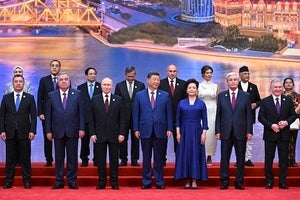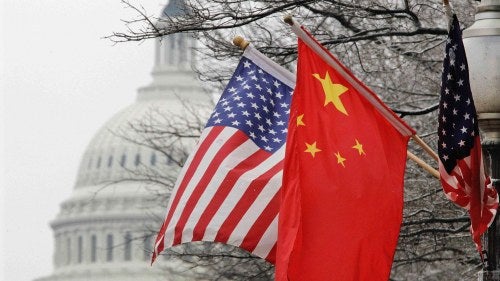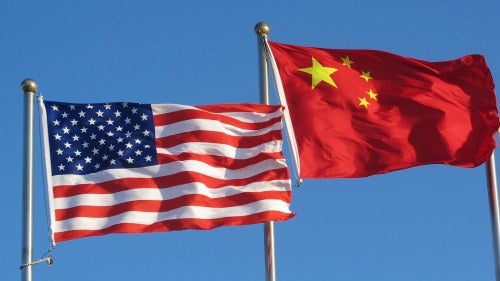Search Results
1 – 10 of 1,291 search results for China
-
 Sergei Bobylev, Sputnik, Kremlin Pool Photo via AP
Sergei Bobylev, Sputnik, Kremlin Pool Photo via APInside China's Global Ambitions
China is plotting their next five years at their fourth plenum. What does this mean for the US, and the world?
-
 Charles Dharapak / AP
Charles Dharapak / APAAPI Views on US-China Relations
Asian Americans are less likely than other racial or ethnic groups to say China’s rise is a “critical” threat to the United States.
-
 Ana Miyares Photography
Ana Miyares PhotographyThe US and China: Competition, Coexistence, or Collision?
John Mearsheimer, Rana Mitter, and Leslie Vinjamuri discuss great power competition, strategic rivalry, and the evolving US-China relationship. -
 Public Opinion SurveyVincent Thian / AP
Public Opinion SurveyVincent Thian / APChinese Public Broadly Confident in China's Economy
September 2, 2025, RESEARCH Public Opinion Survey by Sam Dong , Craig Kafura , Dina Smeltz , Yawei Liu , and Nick Zeller, Vincent Thian / AP, Download Report (PDF), Everyday Chinese citizens view international trade as good for the economy and job creation, and say China should pursue a policy of...
-
China
The latest analysis, events, research, and commentary on the country of China.
-
Yawei Liu
Senior Advisor, China Focus, Carter Center Expertise
Expertise
-
 REUTERS
REUTERSIn China, Seeds are the New Semiconductors
Chinese officials have elevated food security as a policy priority, and they're taking seeds seriously.
-
 CDC Global
CDC GlobalIs the Coronavirus Turning Americans Against China?
Americans are generally distrustful of China's handling of international relations, but recent polling finds that Americans have a more negative view on China than ever before.
-
 Ana Miyares Photography
Ana Miyares PhotographyTaiwan: The US-China Tipping Point?
Rorry Daniels, Damien Ma, Kharis Templeman, and Craig Kafura discuss Taiwan and rising tensions in US-China relations and the implications for regional security and the global economy. -
Reuters
The US-China Competition for Global Opinion
If the United States and China are competing over global public opinion, who’s winning, and where?